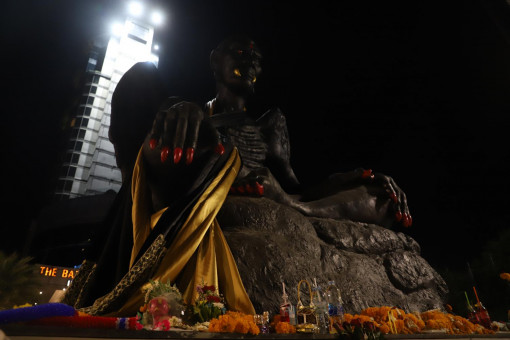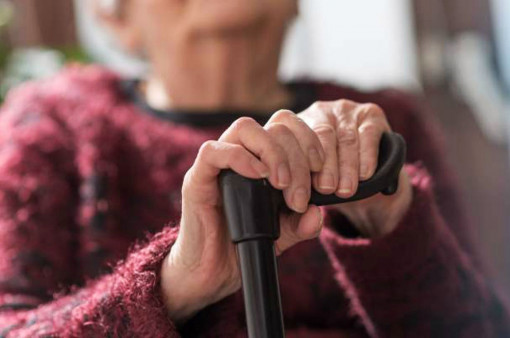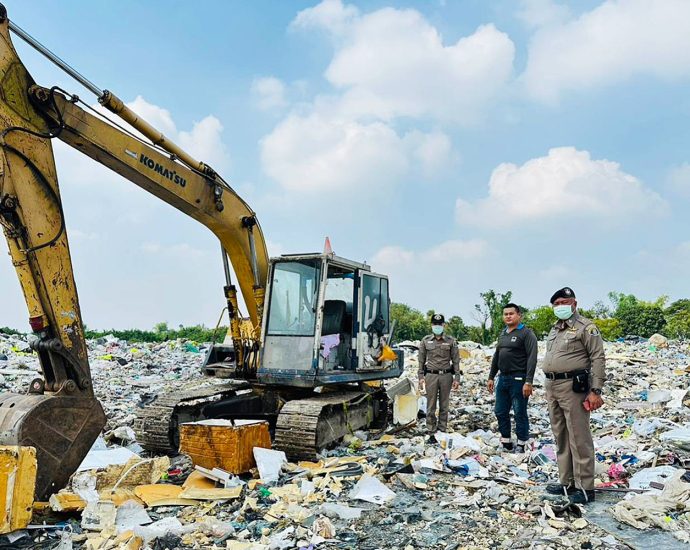Pet sacrifices to occult deity spur warning
PUBLISHED : 17 Aug 2023 at 04:56

Using pets as sacrifices for Khru Kai Kaeo, a deity represented by a gargoyle-like sculpture at a shrine in Bangkok, will make people liable to prosecution, the Watchdog Thailand Foundation (WDT) has warned.
The warning came on the back of growing concerns from pet lovers aghast at the news of worshippers obtaining cats, dogs and rabbits and using them as sacrificial animals.
In a Facebook post, the foundation said believers must think twice before they consider harming pets and using them as sacrifices to the half-human, half-mythical bird sculpture installed at the Ganesha shrine near Huai Khwang intersection.
Intentionally harming animals was a breach of the animal cruelty law, which carries a heavy penalty.
A relative of the sculptor of the Khru Kai Kaeo statue dismissed the rite of making animal sacrifices as a misinterpretation of the correct protocol.
The relative, whose name was not given, built the Ganesha shrine in Bang Yai district of Nonthaburi. He insisted that only fruits and sweets may be presented as offerings to Khru Kai Kaeo.
The sculpture made headlines when it was taken on the back of a truck from a studio in Ratchaburi to the Huai Khwang shrine on the morning of Aug 9. The truck was stuck at a pedestrian bridge, paralysing traffic on Ratchadaphisek Road for about two hours.
The sculpture’s unusual appearance sparked debate about what it represents. According to some believers, Khru Kai Kaeo, also known as Khru Ba Kai Kaeo, was the revered teacher of Jayavarman VII, a former king of the Khmer Empire.
Tongthong Chandransu, a history scholar, however, said he has never heard of this alleged teacher.
Although it is not against the law to worship a statue, the animal sacrifice craze shows how insecure many Thai people have become in their desperate search for spiritual support, he said.
Phra Phayom Kalayano, the abbot of Wat Suan Kaeo, urged people to analyse the information they find online.














